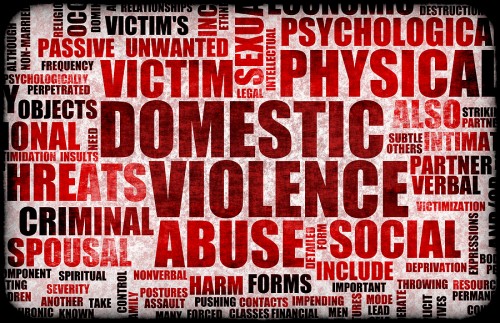New Texas Family Case Laws Effective Sept. 1, 2019
Two New Family Case laws have been passed by the Texas legislature and signed by Governor Abbott, effective 9/1/2019:
HB553 Relating to notice summer weekend possession of a child under a standard possession order in a suit affecting the parent-child relationship.
SECTION 1. Section 153.312, Family Code, is amended by adding subsection (c) to read as follows:
(c) Notwithstanding Section 153.316, after receiving notice from the managing conservator under Subsection (b)(3) of this section designating the summer weekend during which the managing conservator is to have possession of the child, the possessory conservator, not later than the 15th day before Friday that begins that designated weekend, must give the managing conservator written notice of the location at which the managing conservator is to pick up and return the child.
SECTION 2. Section 153.312 (c), Family Code, as added by this Act, applies only to a court order providing for possession of or access to a child rendered on or after the effective date of this Act. A court order rendered before the effective date on this Act is governed by the law in effect on the date the order was rendered, and the former law is continued in effect for that purpose.
SECTION 3. This Act takes effect September 1, 2019
HB House Bill 558: Relating to the court ordered support for a child with disability:
BE IT ENACTED BY THE LEGISLATURE OF THE STATE OF TEXAS:
SECTION 1. Section 154.302, Family Code, is amended by adding Subsection (c) to read as follows:
(c) notwithstanding Subsection (b), a court that orders support under this section for an adult child with a disability may designate a special needs trust and provide that the support may be paid directly to the trust for the benefit of the adult child. The court shall order that support payable to a special needs trust under this subsection be paid directly to the trust and may not order that the support be paid to the state disbursement unit. This subsection does not apply in a Title IV-D case.
SECTION 2. The change in law made by this Act constitutes a material and substantial change of circumstance under Section 156.401, Family Code, sufficient to warrant modification of a court order or a portion of a decree that provides support for a child rendered before the effective date of this Act.
Section 3. This Act takes effect on September 1, 2019
More new Texas Legislature Family Laws to come!
The Serious Warning Signs of Domestic Abusers
Domestic Violence is a very hot topic now. Major personalities from government, business, entertainment, sports, and religious sectors are protesting Domestic Violence and working to help create stronger laws to protect the victims of such violence.
If you are a Victim of Domestic Abuse, you must fight back! No one has the legal right to physically, mentally, or verbally abuse another individual! If you are a relative, friend or acquaintance of a potential victim or victims, please look for warning signs of abuse being committed on these people, asset legal defense on this conduct, and report your findings to the police.
Often victims are so mentally and verbally abused, they do not have the strength to defend themselves or their family. Truly be a friend and help to protect their lives by reporting any fact based suspicion of abuse to the proper authorities.
Some warning signs to look for in an abuser or a potential abuser’s conduct in a relationship:
Push for Quick involvement
A victim often has known or dated the abuser for a brief period of time before getting engaged or living together. The abuser pressures the victim for an exclusive commitment immediately.
Jealousy & Controlling Behavior
An abuser will equate jealously with love and controlling behavior to concern for the victim. The abuser becomes jealous of time spent with others. The abuser may call the victim frequently during the day, drop by unexpectedly, refuse to let the victim work, check the car mileage, or ask friends to watch the victim. As the behavior progresses and the situation worsen, the abuser may assume all control of finances or prevent the victim from coming or going freely.
Unrealistic expectations
An abuser expects the victim to be the perfect partner, and to frankly, without error, meet his or her every need.
Isolation
An abuser will attempt to isolate the victim by severing the victim’s ties to outside support, relationships, and resources. The batterer will accuse the victim’s friends and family of being “trouble makers.” The abuser may block the victim’s access to use of a phone, car, and also discourage the victim from working. No outside contact with the rest of the world.
Playing the Victim
An abuser will blame and project upon others for all problems shortcomings. Someone is always out to get the abuser or is an obstacle to the abuser’s achievements.
Blames others for feelings
An abuser will use feelings to manipulate the victim. Common phrases to look for: “You’re hurting me by not doing what I want.” “You control how I feel.”
Hypersensitivity
An abusive person is easily insulted, claiming hurt felling when he or she is really mad.
Cruelty to animals or children
This is a person who punishes animals brutally or is insensitive to their pain. The abuser may also expect children to perform beyond their capability and use physical force if a child cannot comply. 65% of abusers who beat their victims will also abuse children.
“Playful” use of force in sex
This behavior includes restraining partners against their will during sex, acting out fantasies in which the partner is helpless, initiating sex when the partner is asleep, or demanding sex when the partner is ill or tired. The abuser may also find the idea of rape exciting.
Verbal abuse
Constantly criticizes or says cruel things, degrades, curses, or calls the victim bad names. Sleep deprivation could be involved with relentless verbal abuse.
Rigid sex roles
The abuser will expect the victim to serve, obey and remain home to serve on the abuser
Sudden Mood Swings
Explosive behavior and moodiness, which can shift quickly from sweet to violent in minutes.
Past battering
An abuser will beat any partner if the individual is involved with the abuser long enough for the cycle of abuse to begin.
Threats of violence
This consists of any threat of physical force meant to control the partner. Most people do not threaten their mates but an abuser will excuse this behavior by claiming “everyone talks like that.”
Physical force during an argument
This may involve an abuser holding down the victim, blocking escape routes and physically restraining the victim from leaving, pushing or shoving. Holding someone back in order to make demands, such as “You will listen to me!” is also a show of force.
Interstate Jurisdiction – Enforcing Your Rights in Texas
In a Texas child custody agreement, interstate jurisdiction refers to the state which has the legal authority to enforce and modify a Texas child custody agreement. The state that has jurisdiction decides your Texas child custody case. For help with a child custody case that crosses state lines, contact a qualified interstate jurisdiction attorney to make sure your rights are protected!
Nacol Law Firm P.C. – Dallas TX
Dallas Divorce and Interstate Jurisdiction Attorneys
Tel: (972) 690-3333
We Have a New Address! New Office Location in Dallas for Nacol Law Firm – Effective August 6, 2018
The Law Office of Nacol Law Firm P.C. is proud to announce that we have moved from our Richardson TX office location to our new office at the Walnut Glenn Tower, located at Walnut Hill Lane and North Central Expressway, in Dallas, Texas.
We look forward to seeing you at our new location!
Our new location and address is:
Nacol Law Firm P.C.
8144 Walnut Hill Lane
Suite 1190
Dallas,TX 75231
Our phone number remains the same – (972) 690-3333
Visitor Parking Information at our new office location in the Walnut Glenn Tower:
Visitor parking is available on the first floor of the attached garage on the east side of our building and along Walnut Hill in front of the parking garage.
See Map below for Directions to Nacol Law Firm in Dallas TX
Texas and the Prenuptial Agreement
In Texas, Prenuptial Agreements are becoming a very important tool for prospective spouses in the event of future marital problems. With the rise in divorce rates and more boomer/senior remarriages, many people with assets are turning to a marital contract to sidestep a potentially difficult and very expense divorce.
A prenuptial agreement allows prospective spouses to, legally in advance, specifically define rights and obligations to each other and further allows spouses to decide their future marital property rights with relativity minimal judicial actions. A prenuptial agreement, in Texas, can cover any matter except:
-
Violate public policy or a statute imposing criminal penalties
-
Adversely affect a child’s right to support
-
Defraud a creditor
Texas Family Code 4.003(a)(8), (b),4.106(a).
Among the permissible provisions that parties can list in a prenuptial agreement are the following:
-
Rights and obligations of any interest, present or future, legal or equitable, vested or contingent, in real or personal property.
-
Right to manage, control and dispose, by agreement, property upon separation of the married parties, dissolution of the marriage, death of either party, or other agreed event.
-
Modify or eliminate spousal support.
-
Specific matters related to prospective spouses, including personal rights and obligations that are not in violation of state laws.
-
Choice of a state or country law that will govern the prenuptial agreement.
-
Creation of a Will or Trust.
-
Disposing of the Estate upon the death of one of the spouses. Also ownership rights and disposition of benefits from a life insurance policy upon the death.
-
Waive one party’s right to occupy the family homestead after the other party dies.
NACOL LAW FIRM P.C.
8144 Walnut Hill Lane
Suite 1190
Dallas, Texas 75231
972-690-3333
Office Hours
Monday – Thursday, 8am – 5pm
Friday, 8:30am – 5pm
OUR BLOGS
SEARCH
JOIN OUR NETWORK

Attorney Mark A. Nacol is board certified in Civil Trial Law by the Texas Board of Legal Specialization








